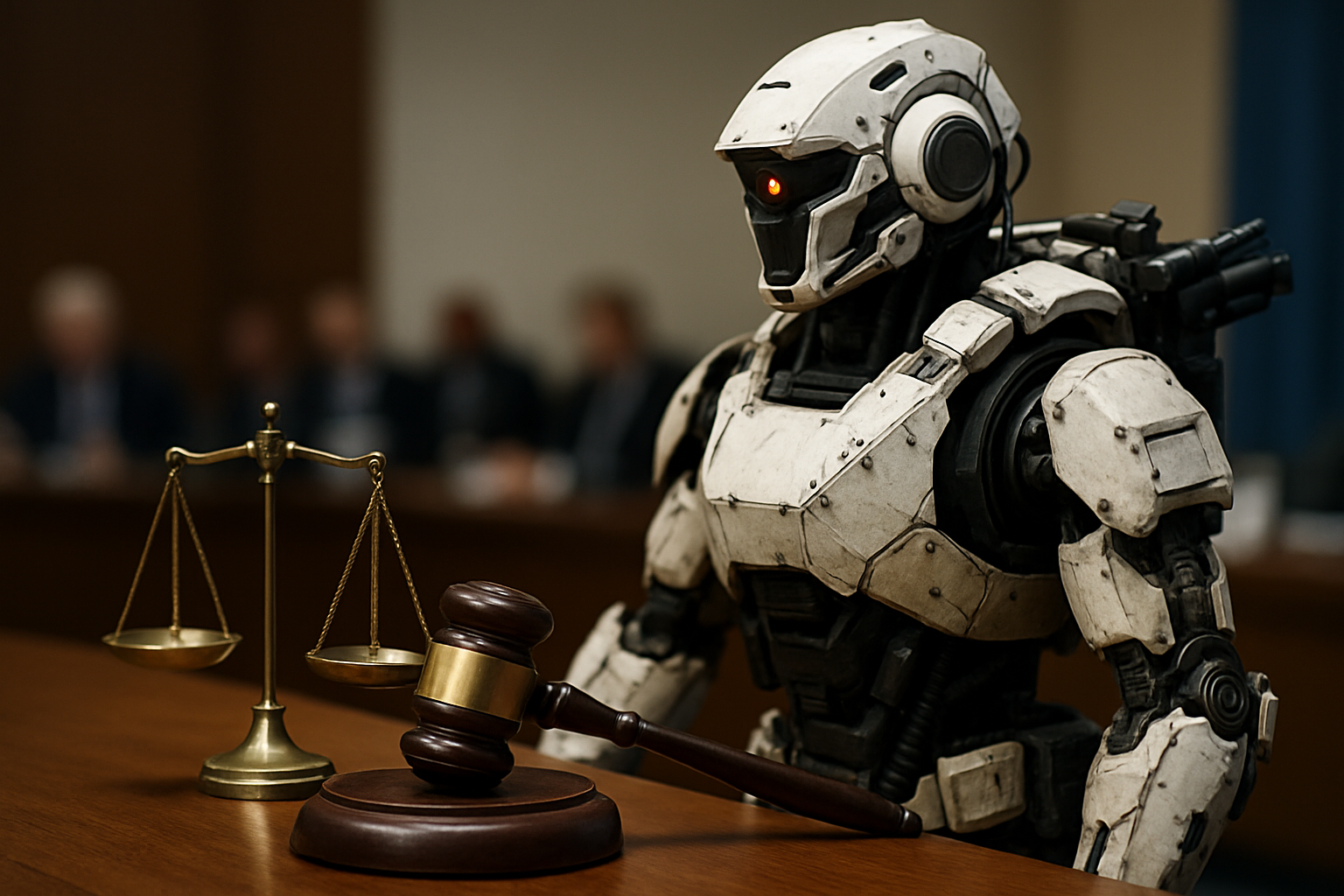Title: Legal Personhood for AI: Navigating Uncharted Waters
The concept of legal personhood for artificial intelligence (AI) systems is rapidly emerging as a critical frontier in law and technology. As AI becomes increasingly sophisticated and autonomous, questions arise about its legal status, rights, and responsibilities. This article explores the complex legal landscape surrounding AI personhood, examining current debates, potential implications, and the challenges of adapting existing legal frameworks to this revolutionary technology.

Current Legal Status of AI
Presently, AI systems are generally treated as property or tools under the law. They lack independent legal standing and are subject to the control and responsibility of their human creators or owners. This approach, while straightforward, is increasingly strained as AI systems become more autonomous and capable of making decisions with minimal human input.
Arguments for AI Legal Personhood
Proponents of AI legal personhood argue that as AI systems become more sophisticated, they may develop characteristics traditionally associated with personhood, such as self-awareness and the ability to make independent decisions. Granting legal personhood could provide a framework for holding AI systems accountable for their actions and decisions, potentially increasing public trust in AI technology.
Challenges and Counterarguments
Critics argue that AI, no matter how advanced, lacks the fundamental qualities that justify personhood, such as consciousness and free will. They warn that granting legal personhood to AI could dilute the concept and lead to unintended consequences, such as shifting liability away from human creators and operators. There are also concerns about how to practically implement such a system, including questions of representation and enforcement.
Potential Legal Frameworks
Several models for AI legal personhood have been proposed. One approach suggests creating a new category of electronic personhood, distinct from natural or corporate personhood. Another proposes a graduated system of rights and responsibilities based on an AI system’s level of autonomy and capability. These frameworks aim to balance the need for accountability with the unique nature of AI systems.
International Perspectives and Approaches
The debate over AI personhood is not confined to any single jurisdiction. The European Parliament has considered the concept of electronic personhood for AI, while countries like Saudi Arabia have granted citizenship to a humanoid robot, albeit largely as a publicity stunt. These developments highlight the global nature of the challenge and the need for international cooperation in developing coherent legal approaches.
Implications for Liability and Responsibility
One of the most significant implications of AI personhood is its potential impact on liability. If an AI system is recognized as a legal person, questions arise about how to hold it accountable for damages or illegal actions. This could lead to the development of new insurance models, liability frameworks, and even the concept of AI bankruptcy.
Ethical and Philosophical Considerations
The debate over AI personhood is not purely legal; it touches on deep philosophical and ethical questions. It challenges our understanding of consciousness, intelligence, and the nature of personhood itself. As AI systems become more advanced, these questions will become increasingly pressing, requiring interdisciplinary approaches that combine legal, philosophical, and technological expertise.
The Role of Legislation and Regulation
As the debate evolves, legislators and regulators will play a crucial role in shaping the legal landscape for AI personhood. This may involve creating new laws, adapting existing frameworks, or developing entirely new legal concepts. The challenge will be to create regulations that are flexible enough to accommodate rapid technological advancements while providing clear guidelines for developers, users, and the legal system.
Looking Ahead: The Future of AI in Law
The question of AI personhood is likely to become increasingly prominent in legal discourse as AI technology continues to advance. It represents a fundamental challenge to our legal systems, requiring us to reconsider basic concepts of rights, responsibilities, and personhood. As we navigate these uncharted waters, it will be crucial to balance innovation with ethical considerations, ensuring that our legal frameworks evolve to meet the challenges of the AI age while preserving fundamental human rights and values.





